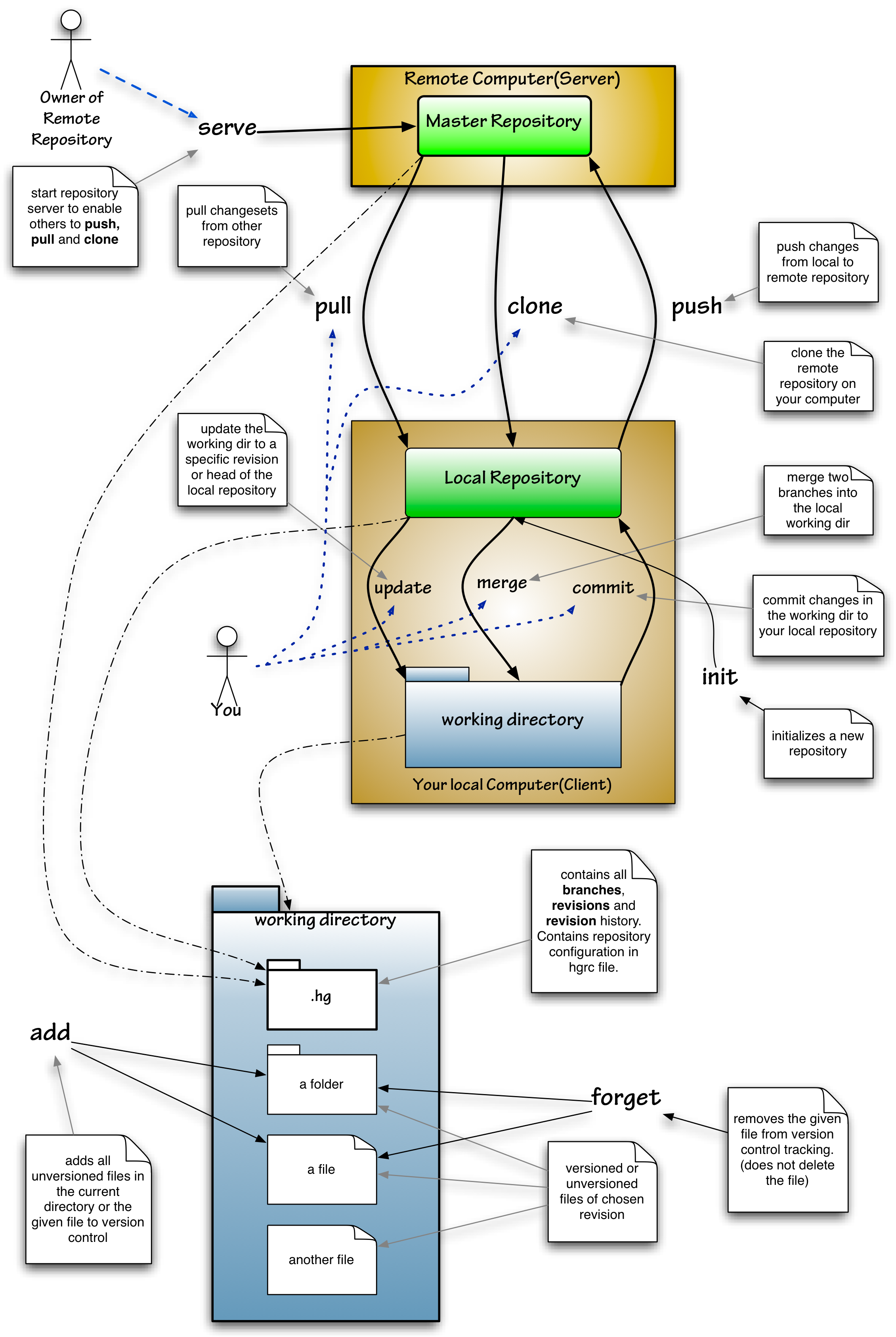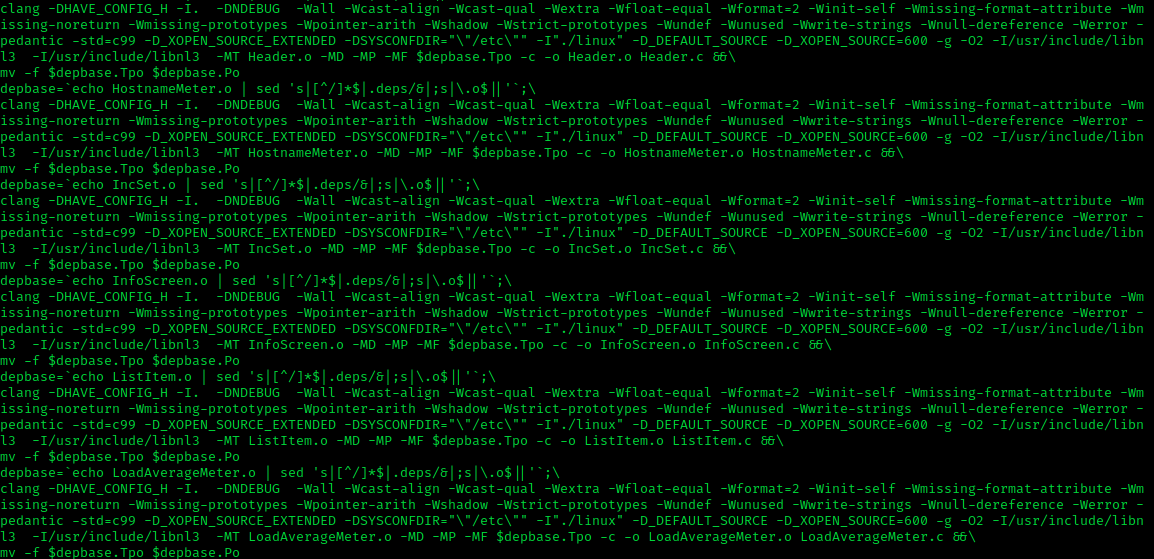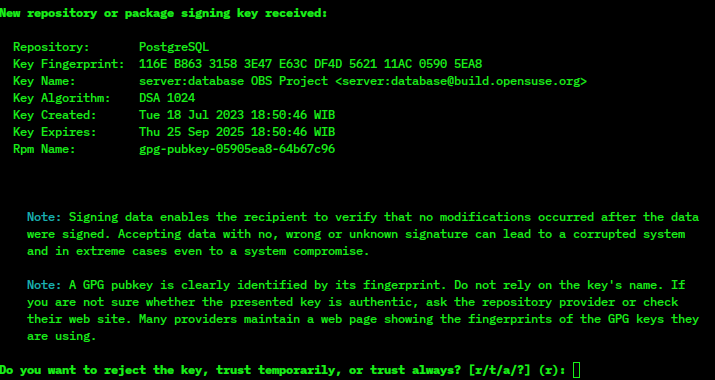|
Phabricator
Phabricator is a discontinued suite of web-based development collaboration tools, which includes a code review tool called ''Differential'', a repository browser called ''Diffusion'', a change monitoring tool called ''Herald'', a bug tracker called ''Maniphest'', and a wiki called ''Phriction''. Phabricator integrates with Git, Mercurial, and Subversion. It is available as free software under the Apache License 2.0. Phabricator was originally developed as an internal tool at Facebook overseen by Evan Priestley. Priestley left Facebook to continue Phabricator's development in a new company called Phacility. On May 29, 2021, Phacility announced that it was ceasing operations and no longer maintaining Phabricator starting June 1, 2021. A community fork, Phorge, was created and announced its stable release to the public on September 7, 2022. Notable users Phabricator's users included: * AngularJS * Asana * Blender * Discord * Dropbox * Facebook * FreeBSD * GnuPG * ... [...More Info...] [...Related Items...] OR: [Wikipedia] [Google] [Baidu] |
Repository Browser
A source-code-hosting facility (also known as forge software) is a file archive and web hosting facility for source code of software, documentation, web pages, and other works, accessible either publicly or privately. They are often used by open-source software projects and other multi-developer projects to maintain revision and version history, or version control. Many repositories provide a bug tracking system, and offer release management, mailing lists, and wiki-based project documentation. Software authors generally retain their copyright when software is posted to a code hosting facilities. General information } , - ! scope="row" , CloudForge , CollabNet , 2012 , , , , , - ! scope="row" , Codeberg , Codeberg e.V. , 2019 , , , , Codeberg e.V. is a non-profit which operates a public Forgejo-based software forge and bug tracker, and related services such as Codeberg Pages, a Weblate translation server, and CI/CD features via Woodpecker CI. , - ! scope="row" ... [...More Info...] [...Related Items...] OR: [Wikipedia] [Google] [Baidu] |
Blender (software)
Blender is a Free and open-source software, free and open-source 3D computer graphics software tool set that runs on Microsoft Windows, Windows, macOS, BSD, Haiku (operating system), Haiku, IRIX and Linux. It is used for creating animated films, visual effects, art, 3D printing, 3D-printed models, motion graphics, interactive 3D applications, and virtual reality. It is also used in creating video games. Blender was used to produce the Academy Awards, Academy Award-winning film ''Flow (2024 film), Flow'' (2024). History Blender was initially developed as an in-house application by the Dutch animation studio NeoGeo (no relation to the Neo Geo, video game brand), and was officially launched on January 2, 1994. Version 1.00 was released in January 1995, with the primary author being the company co-owner and software developer Ton Roosendaal. The name ''Blender'' was inspired by a song by the Swiss electronic band Yello, from the album ''Baby (Yello album), Baby'', which NeoGeo used ... [...More Info...] [...Related Items...] OR: [Wikipedia] [Google] [Baidu] |
Mercurial
Mercurial is a distributed revision control tool for software developers. It is supported on Microsoft Windows, Linux, and other Unix-like systems, such as FreeBSD and macOS. Mercurial's major design goals include high performance and scalability, decentralization, fully distributed collaborative development, robust handling of both plain text and binary files, and advanced branching and merging capabilities, while remaining conceptually simple. It includes an integrated web-interface. Mercurial has also taken steps to ease the transition for users of other version control systems, particularly Subversion. Mercurial is primarily a command-line driven program, but graphical user interface extensions are available, e.g. TortoiseHg, and several IDEs offer support for version control with Mercurial. All of Mercurial's operations are invoked as arguments to its driver program hg (a reference to Hg – the chemical symbol of the element mercury). Olivia Mackall originated Mercu ... [...More Info...] [...Related Items...] OR: [Wikipedia] [Google] [Baidu] |
Facebook, Inc
Meta Platforms, Inc. is an American multinational technology company headquartered in Menlo Park, California. Meta owns and operates several prominent social media platforms and communication services, including Facebook, Instagram, Threads (social network), Threads, Facebook Messenger, Messenger and WhatsApp. The company also operates an advertising network for its own sites and third parties; , advertising accounted for 97.8 percent of its total revenue. The company was originally established in 2004 as TheFacebook, Inc., and was renamed Facebook, Inc. in 2005. In 2021, it rebranded as Meta Platforms, Inc. to reflect a strategic shift toward developing the metaverse—an interconnected digital ecosystem spanning virtual reality, virtual and augmented reality technologies. Meta is considered one of the Big Tech, Big Five American technology companies, alongside Alphabet Inc., Alphabet (Google), Amazon (company), Amazon, Apple Inc., Apple, and Microsoft. In 2023, it was rank ... [...More Info...] [...Related Items...] OR: [Wikipedia] [Google] [Baidu] |
Forbes
''Forbes'' () is an American business magazine founded by B. C. Forbes in 1917. It has been owned by the Hong Kong–based investment group Integrated Whale Media Investments since 2014. Its chairman and editor-in-chief is Steve Forbes. The company is headquartered in Jersey City, New Jersey. Sherry Phillips is the current CEO of Forbes as of January 1, 2025. Published eight times per year, ''Forbes'' feature articles on finance, industry, investing, and marketing topics. It also reports on related subjects such as technology, communications, science, politics, and law. It has an international edition in Asia as well as editions produced under license in 27 countries and regions worldwide. The magazine is known for its lists and rankings, including its lists of the richest Americans (the Forbes 400, ''Forbes'' 400), of 30 notable people under the age of 30 (the Forbes 30 Under 30, ''Forbes'' 30 under 30), of America's wealthiest celebrities, of the world's top companies (the Fo ... [...More Info...] [...Related Items...] OR: [Wikipedia] [Google] [Baidu] |
LLDB (debugger)
The LLDB Debugger (LLDB) is the debugger component of the LLVM project. It is built as a set of reusable components which extensively use existing libraries from LLVM, such as the Clang expression parser and LLVM disassembler. LLDB is free and open-source software under the University of Illinois/NCSA Open Source License, a BSD-style permissive software license. Since v9.0.0, it was relicensed to the Apache License 2.0 with LLVM Exceptions. Current state LLDB supports debugging of programs written in C, Objective-C, and C++. The Swift community maintains a version which adds support for the language. Free Pascal and the Lazarus IDE can use LLDB as backend for their own FpDebug engine. The LLDB debugger is known to work on macOS, Linux Linux ( ) is a family of open source Unix-like operating systems based on the Linux kernel, an kernel (operating system), operating system kernel first released on September 17, 1991, by Linus Torvalds. Linux is typically pac ... [...More Info...] [...Related Items...] OR: [Wikipedia] [Google] [Baidu] |
Clang
Clang () is a compiler front end for the programming languages C, C++, Objective-C, Objective-C++, and the software frameworks OpenMP, OpenCL, RenderScript, CUDA, SYCL, and HIP. It acts as a drop-in replacement for the GNU Compiler Collection (GCC), supporting most of its compiling flags and unofficial language extensions. It includes a static analyzer, and several code analysis tools. Clang operates in tandem with the LLVM compiler back end and has been a subproject of LLVM 2.6 and later. As with LLVM, it is free and open-source software under the Apache 2.0 software license. Its contributors include Apple, Microsoft, Google, ARM, Sony, Intel, and AMD. Clang 17, the latest major version of Clang as of October 2023, has full support for all published C++ standards up to C++17, implements most features of C++20, and has initial support for the C++23 standard. Since v16.0.0, Clang compiles C++ using the GNU++17 dialect by default, which includes features fro ... [...More Info...] [...Related Items...] OR: [Wikipedia] [Google] [Baidu] |
LLVM
LLVM, also called LLVM Core, is a target-independent optimizer and code generator. It can be used to develop a Compiler#Front end, frontend for any programming language and a Compiler#Back end, backend for any instruction set architecture. LLVM is designed around a language-independent specification, language-independent intermediate representation (IR) that serves as a Software portability, portable, high-level assembly language that can be optimizing compiler, optimized with a variety of transformations over multiple passes. The name ''LLVM'' originally stood for ''Low Level Virtual Machine.'' However, the project has since expanded, and the name is no longer an acronym but an orphan initialism. LLVM is written in C++ and is designed for compile-time, Linker (computing), link-time, runtime (program lifecycle phase), runtime, and "idle-time" optimization. Originally implemented for C (programming language), C and C++, the language-agnostic design of LLVM has since spawned a wide ... [...More Info...] [...Related Items...] OR: [Wikipedia] [Google] [Baidu] |
Mozilla
Mozilla is a free software community founded in 1998 by members of Netscape. The Mozilla community uses, develops, publishes and supports Mozilla products, thereby promoting free software and open standards. The community is supported institutionally by the Nonprofit organization, non-profit Mozilla Foundation and its tax-paying subsidiary, the Mozilla Corporation. List of Mozilla products, Mozilla's current products include the Firefox web browser, Mozilla Thunderbird, Thunderbird e-mail client (now through a subsidiary), the Bugzilla bug tracking system, the Gecko (software), Gecko layout engine, and the Pocket (service), Pocket "read-it-later-online" service. History On January 23, 1998, Netscape announced that its Netscape Communicator browser software would be free, and that its source code would also be free. One day later, Jamie Zawinski of Netscape registered . The project took its name, "Mozilla", from the original code name of the Netscape Navigator browser—a por ... [...More Info...] [...Related Items...] OR: [Wikipedia] [Google] [Baidu] |
Khan Academy
Khan Academy is an American non-profit educational organization created in 2006 by Sal Khan. Its goal is to create a set of online tools that help educate students. The organization produces short video lessons. Its website also includes supplementary practice exercises and materials for educators. It has produced over 10,000 video lessons teaching a wide spectrum of academic subjects, including mathematics, sciences, literature, history, and computer science. All resources are available free to users of the website and application. History Starting in 2004, Salman "Sal" Khan began tutoring one of his cousins in mathematics on the Internet using a service called Yahoo! Doodle Images. After a while, Khan's other cousins began to use his tutoring service. Due to the demand, Khan decided to make his videos watchable on the Internet, so he published his content on YouTube. Later, he used a drawing application called SmoothDraw, and now uses a Wacom tablet to draw using ArtRa ... [...More Info...] [...Related Items...] OR: [Wikipedia] [Google] [Baidu] |
GnuPG
GNU Privacy Guard (GnuPG or GPG) is a free-software replacement for Symantec's cryptographic software suite PGP. The software is compliant with the now obsoleted , the IETF standards-track specification of OpenPGP. Modern versions of PGP are interoperable with GnuPG and other OpenPGP v4-compliant systems. November 2023 saw two drafts aiming to update the 2007 OpenPGP v4 specification (RFC4880), ultimately resulting in thRFC 9580standard in July 2024. The proposal from the GnuPG developers, which is called LibrePGP, was not taken up by the OpenPGP Working Group and future versions of GnuPG will not support the current version of OpenPGP. GnuPG is part of the GNU Project and received major funding from the German government in 1999. Overview GnuPG is a hybrid-encryption software program because it uses a combination of conventional symmetric-key cryptography for speed, and public-key cryptography for ease of secure key exchange, typically by using the recipient's publi ... [...More Info...] [...Related Items...] OR: [Wikipedia] [Google] [Baidu] |
FreeBSD
FreeBSD is a free-software Unix-like operating system descended from the Berkeley Software Distribution (BSD). The first version was released in 1993 developed from 386BSD, one of the first fully functional and free Unix clones on affordable home-class hardware, and has since continuously been the most commonly used BSD-derived operating system. FreeBSD maintains a complete system, delivering a kernel, device drivers, userland utilities, and documentation, as opposed to Linux only delivering a kernel and drivers, and relying on third-parties such as GNU for system software. The FreeBSD source code is generally released under a permissive BSD license, as opposed to the copyleft GPL used by Linux. The project includes a security team overseeing all software shipped in the base distribution. Third-party applications may be installed using the pkg package management system or from source via FreeBSD Ports. The project is supported and promoted by the FreeBSD Foundation ... [...More Info...] [...Related Items...] OR: [Wikipedia] [Google] [Baidu] |





